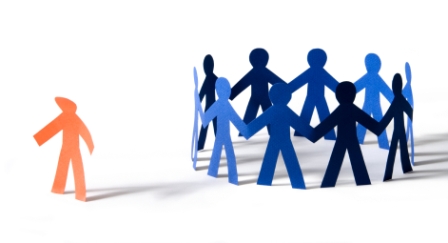Report says a million are on the margin
 A new Productivity Commission report says over one million Australians live in deep or very deep social exclusion, and that economic growth in the country has not helped the disadvantaged.
A new Productivity Commission report says over one million Australians live in deep or very deep social exclusion, and that economic growth in the country has not helped the disadvantaged.
The Deep and Persistent Disadvantage in Australia Report has highlighted some of the arguments made by those who accuse the Federal Government of turning its back on the marginalised. The report shows people living in very deep social exclusion are likely to be single parents, poorly educated, jobless or indigenous.
The figures, gathered by the Brotherhood of St Laurence, show a small decrease in the amount of people in the “deep exclusion” category over the last decade, with numbers in the “very deep exclusion” bracket staying about the same.
Kevin Rudd says social exclusion issues, particularly homelessness, are close to his heart. A National Partnership Agreement on Homelessness initiated by Mr Rudd in 2008 aimed to reduce numbers by 7 per cent to this month. A National Audit Office report earlier this year found that numbers had blown out by 17 per cent, despite funding of $1.1 billion. Mr Rudd also appointed Julia Gillard the new Minister of Social Inclusion in 2007, that portfolio has since fallen out of the ministry.
The report does say kids born into socially excluded surrounds are not themselves doomed; "there is also some evidence which suggests that what distinguishes high-risk children . . . is not exposure to a specific risk factor but rather a life history characterised by multiple familial disadvantages that span social and economic disadvantage," the report said, “but, importantly, the relationship is not deterministic."








 Print
Print